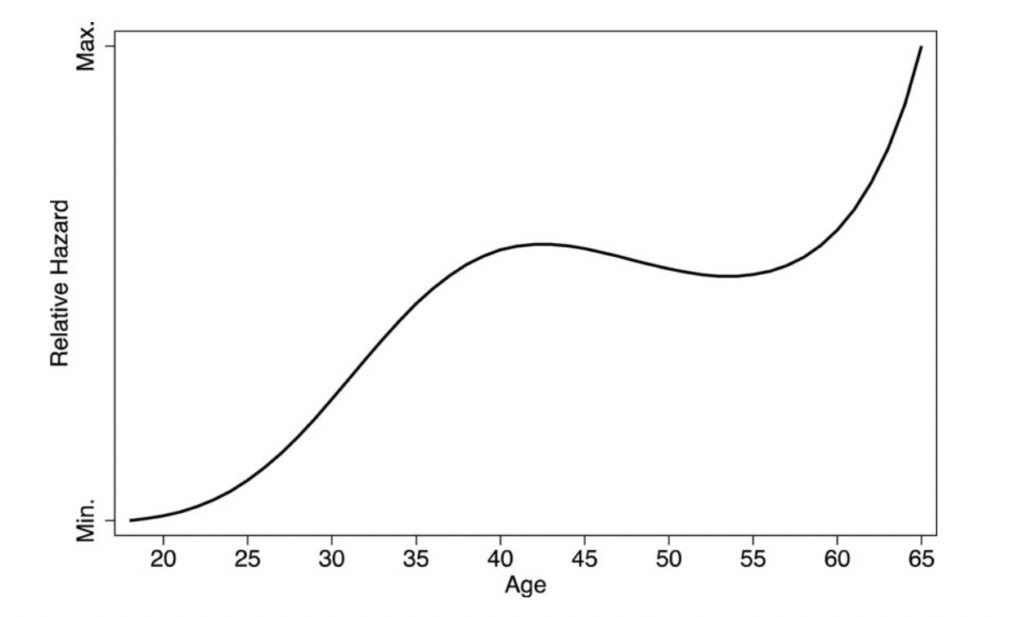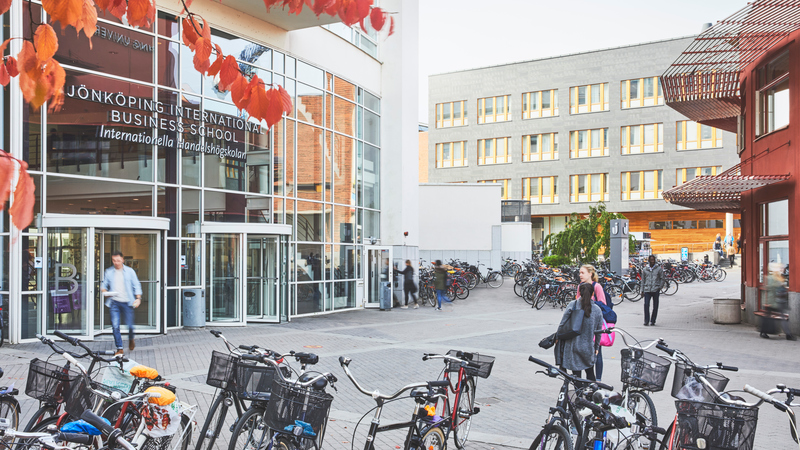16 years of academic excellence and practical relevance in Family Entrepreneurship and Ownership.
Fail but try again?
What leads Swedish failed owners to reenter entrepreneurship? We investigate this question by observing how entrepreneurs react to a failure and how their age affects their perspective.

We found that a failed entrepreneur’s age is related to the likelihood of entrepreneurial reentry favoring those who fail in early (<40 years old)- and later(>50 years old)-career stage, but negative impacting on those who fail during the mid-career stage (40-50 years old). That is, the relationship between failed entrepreneurs’ age and the likelihood of reentry increases with age in the early-career stage, decreases with age in the mid-career stage, and then increases with age in the late career stage (see figure 1).

More specifically:
- during the early-career stage: An early experience with entrepreneurship is often viewed as a trial-and-error learning experience and an opportunity to learn-by-doing. Failing as a young entrepreneur has little societal stigma that allows young failed entrepreneurs to better restore and enhance their social capital in the years following failure.
- The mid-career: it is an important phase in individuals’ careers because it is a time during which they reflect on the difference between what has been achieved and what they desire within the context of what time remains. This process is a key reason that individuals make career changes during mid-career. As a result, failed entrepreneurs are more likely to give up their entrepreneurial career ambitions in exchange for wage employment as they progress through the mid-career stage
- Late-career stage: in this stage, individuals increasingly come to know who they are and who they are not. The late-career stage tends to focus on re-invigoration, learning, and growing in pre-existing directions that are consistent with the individual’s self-concept. Therefore, as failed entrepreneurs progress in the late-career stage, their intensified self-concept as an entrepreneur and focus on enjoying their work are likely to encourage their reentry into entrepreneurship rather than wage employment.
This post is a summary of part of a research article written by Massimo Baù, Philipp Sieger, Kimberly Eddleston and Francesco Chirico and published in Entrepreneurship Theory and Practice and can be requested to the authors of this blog post.
Detta är en bloggtext. Det är skribenten som står för åsikterna som förs fram i texten, inte Jönköping University.





